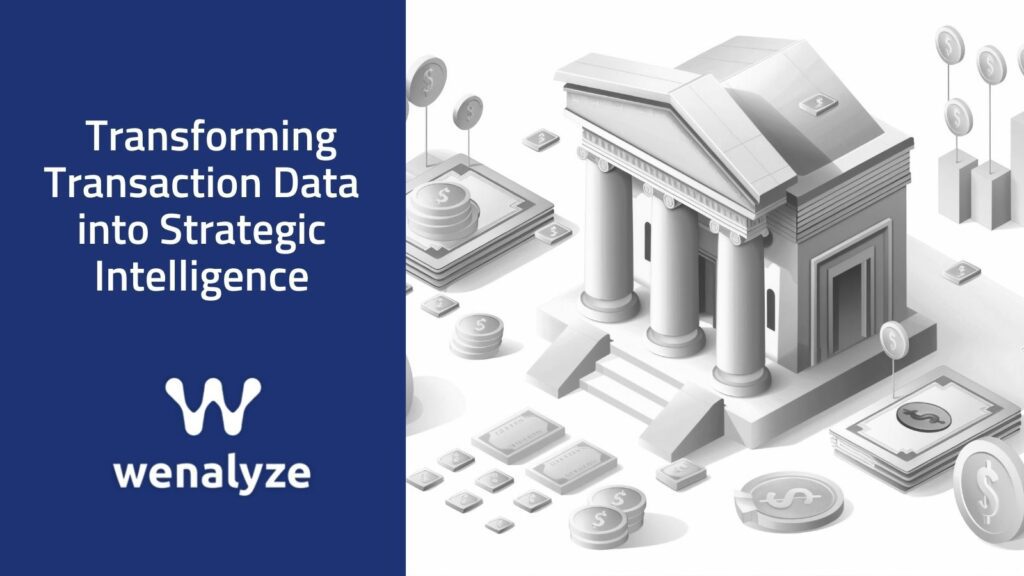
The payments industry is undergoing a significant transformation, driven by evolving customer expectations and the rise of innovative fintech companies. Traditional banking institutions, which have historically been the primary custodians of financial data, now face considerable pressure to adapt and compete in this dynamic environment.
FinTechs, unencumbered by legacy systems, are demonstrating the power of data-driven insights to create more efficient, secure, and profitable payment ecosystems. Open Banking, with its promise of secure data sharing via APIs, offers a compelling solution. However, its true value is realised when businesses can access and interpret payment data at a granular level, transforming raw transaction records into actionable intelligence.
The true potential of open banking lies not merely in accessing raw financial data but in enriching and categorising it to extract meaningful insights. Advanced technologies such as Large Language Models (LLMs) and machine learning algorithms play a pivotal role in this transformation.
By applying these technologies to payment transactions, raw data can be intelligently transformed into valuable information, empowering businesses to understand customer behaviour, identify market trends, and optimise operational strategies. This involves moving beyond simple descriptions to meticulously categorising spending patterns, accurately identifying merchant types, and inferring customer demographics and lifestyle preferences.
The benefits of this granular data analysis are extensive. Accurate and automated transaction categorisation can simplify accounting processes, streamline tax compliance, and significantly reduce administrative burdens. Enhanced fraud detection systems can be developed by identifying anomalous spending patterns in real-time, flagging potentially fraudulent transactions with unprecedented speed and accuracy. Furthermore, a deeper understanding of customer preferences allows merchants to tailor their product offerings, personalise marketing efforts, and cultivate increased sales and stronger customer loyalty.
The lack of granular data insight often presents significant challenges for merchants and businesses. Several key pain points can be effectively alleviated through the strategic use of enriched payment data, enabling new opportunities for growth and efficiency.
Know your customer (KYC): Traditional KYC processes are often cumbersome, creating obstacles for both businesses and customers. Open Banking data, when meticulously enriched and categorised, offers a more comprehensive view of a customer’s financial history, streamlining onboarding, improving efficiency, and reducing the risk of fraudulent activities.
Fraud detection: Granular data analysis enables the development of sophisticated fraud detection systems. By identifying subtle deviations from established spending patterns, businesses can proactively flag suspicious transactions in real-time and implement measures to prevent fraudulent activities before they cause damage.
Cross-selling opportunities: Without a granular understanding of customer preferences, businesses often miss valuable opportunities to cross-sell or up-sell relevant products or services. By analysing transaction data, merchants can identify recurring patterns of behaviour and tailor their offers to individual customers, increasing revenue and enhancing customer satisfaction.
Lending and credit assessment: Lenders can leverage enriched Open Banking data to improve risk assessment processes. By analysing transaction data, they gain a more accurate view of a borrower’s creditworthiness and ability to repay loans, leading to more informed lending decisions and a reduction in default rates.
The ultimate success of Open Banking depends on the ability to transform raw data into actionable intelligence, thus driving wider adoption and unlocking significant value for all stakeholders involved.
One in three payment transactions is poorly categorised or lacks critical information. That means institutions are often working with just 67% accurate data and missing out on key insights.
Many banks and financial institutions are sitting on a goldmine of data, but struggle to discover its full potential. Wenalyze leverages open data to transform raw, unreliable payment transactions into profitable insights, delivering:
With seamless integration, Wenalyze increases data accuracy from 67% to 99%, reduces operational costs by 20%, and boosts detection of sales opportunities by 4x, going beyond just fixing data, but identifying even the smallest and most niche merchants globally, helping financial institutions move from data chaos to clarity.
The Payments Association
St Clement’s House
27 Clements Lane
London EC4N 7AE
© Copyright 2024 The Payments Association. All Rights Reserved. The Payments Association is the trading name of Emerging Payments Ventures Limited.
Emerging Ventures Limited t/a The Payments Association; Registered in England and Wales, Company Number 06672728; VAT no. 938829859; Registered office address St. Clement’s House, 27 Clements Lane, London, England, EC4N 7AE.







Log in to access complimentary passes or discounts and access exclusive content as part of your membership. An auto-login link will be sent directly to your email.
We use an auto-login link to ensure optimum security for your members hub. Simply enter your professional work e-mail address into the input area and you’ll receive a link to directly access your account.
Instead of using passwords, we e-mail you a link to log in to the site. This allows us to automatically verify you and apply member benefits based on your e-mail domain name.
Please click the button below which relates to the issue you’re having.
Sometimes our e-mails end up in spam. Make sure to check your spam folder for e-mails from The Payments Association
Most modern e-mail clients now separate e-mails into different tabs. For example, Outlook has an “Other” tab, and Gmail has tabs for different types of e-mails, such as promotional.
For security reasons the link will expire after 60 minutes. Try submitting the login form again and wait a few seconds for the e-mail to arrive.
The link will only work one time – once it’s been clicked, the link won’t log you in again. Instead, you’ll need to go back to the login screen and generate a new link.
Make sure you’re clicking the link on the most recent e-mail that’s been sent to you. We recommend deleting the e-mail once you’ve clicked the link.
Some security systems will automatically click on links in e-mails to check for phishing, malware, viruses and other malicious threats. If these have been clicked, it won’t work when you try to click on the link.
For security reasons, e-mail address changes can only be complete by your Member Engagement Manager. Please contact the team directly for further help.